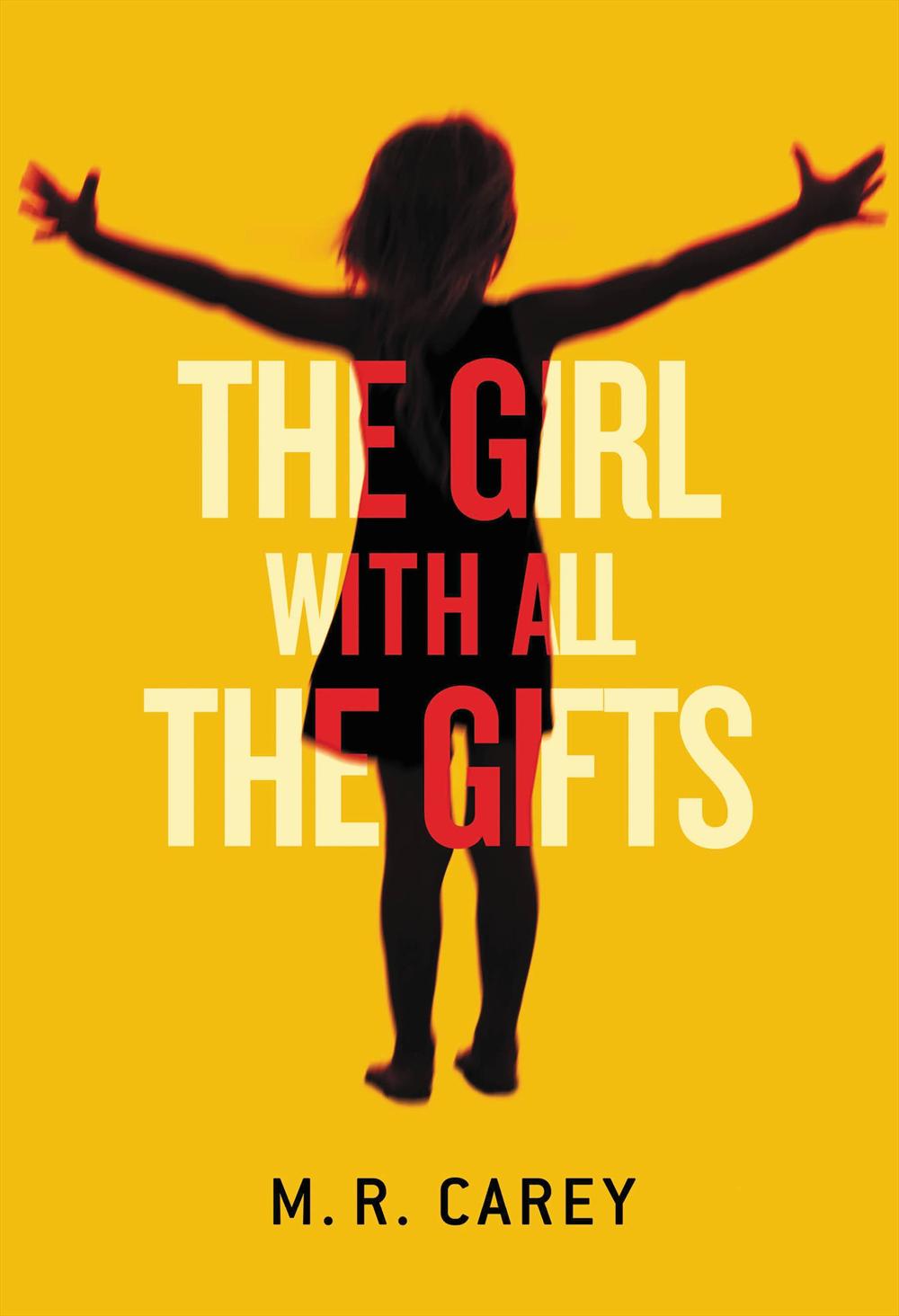Carey, M. R. The Girl with All the Gifts. Orbit, June 2014.
Buy it here starting June 10th!
The Meat (of the Mushrooms
Or, Fungocalypse Now!
Books about bad guys are awesome. Best of all are those
where either the readers or the bad guys themselves (or both) don't even know
they're bad guys! Since 'the reveal' about the eponymous girl, Melanie (but her
true name, thematically at least, is
Pandora!), happens right at the beginning, I'm giving little away when I say
that Melanie is just such a doesn't-know-she's-bad character. There are
wonderful, slightly displaced echoes of Matheson's I Am Legend here, and a glorious twist at the end worthy of an M.
Night Shyamalan movie (one of his good early efforts, not the trite drivel he
poops out these days). Choosing to introduce us to the post-(but not fully)apocalyptic
human world partly through the eyes of one of its near-destroyers, Melanie,
ensures the reader's sympathy for her rather unique plight, caught between the
human and 'hungry' worlds.
 +
+ +
+
Ophiocordyceps unilateralis!
=
 |
| (Crichton-esque 'meddling with nature' is the implied cause of the fungocalypse) |
One of the book's
greatest strengths, however, is that despite this tacit endorsement of
Melanie's perspective, Carey (the author) doesn't let us slide into the
seductively easy trap of identifying entirely with the protagonist (Melanie,
the anti-hero) at the expense of those characters to whom she takes a dislike
(Sergeant Parks, seen initially from her perspective as a loathsome, hateful
Napoleon of a man, turns out to have quite a human dimension as well).
The key in
melodrama, broadly defined, is generating an intense burst of antipathy in
readers for certain characters because of the injustice or essential unfairness
of their actions (i.e., creating someone to hate as the foil for the hero, who
we are meant to love), then providing a cathartic (and often violent)
resolution in the form of the hero, justice personified, triumphing over the
unreasonable foe. So this decision by Carey to take the high road (avoiding the
easy payday of a totally despicable character) and keep things balanced between
multiple competing, and (perhaps) equally valid perspectives brings deliciously
sustained tension to the story as it unfolds. I can't recall the last time I read
something possessing such fine equilibrium (and I have no doubt that when this
is, inevitably, made into a Hollywood movie, this rare anti-melodramatic
quality will vanish, replaced by a much more straightforward morality play, the
kind where bad guys are irredeemably bad and good guys as unimpeachable as
friggin' Albus Dumbledore). Warm
Bodies (book and/or movie) was close, but the future father in law was
just such a jerktard!
Was every single
aspect of The Girl with All the Gifts full of the same brilliance as the
highlights mentioned above? No, there were naturally weaker aspects of the
story, in particular behavior by certain characters (here's looking at you,
Private G.!) that was frankly so mind-bogglingly dumb as to be, in essence, out
of character, as well as a certain coldly rational scientist who indeed began
to approach the 'totally bad' type of villain, almost a caricature of
"(evil) scientist", so impersonal and inhuman were her actions. But
if we leave aside these just slightly jarring notes, we can enjoy what remains:
a delightfully entertaining symphony of the fungocalypse!
The Math
Baseline assessment: 7/10
Bonuses: +1 for villain's-eye-view, +1 for humanizing
(almost) all the characters and preventing any one viewpoint from achieving
melodramatic dominance
Penalties: -1 for including a few less developed characters,
indeed mere caricatures of archetypes
Nerd coefficient: 8/10 "Well worth your time and
attention"
[As you can read here, 8/10
from us is like an 11/10 from the guys in Spinal Tap!]

